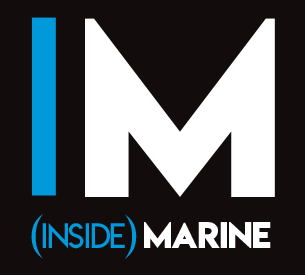United European Car Carriers (UECC) has secured a major bunkering deal with Titan Clean Fuels to source liquefied biomethane that will enable the company to reduce its GHG emissions by over 75,000 tonnes in 2025 – or around one-third of its annual direct emissions from vessel operations.
Titan will provide ISCC-EU certified mass balanced liquefied biomethane (LBM), or bioLNG, for bunkering at the Port of Zeebrugge to fuel UECC’s five dual-fuel LNG Pure Car and Truck Carriers (PCTC) operating in the European shortsea trade under the supply contract covering the rest of this year and 2025 when a minimum of 12,000 tonnes of LBM will be supplied.
UECC is expanding its collaboration with Titan following the launch with the Dutch clean fuel supplier earlier this year of the ‘Sail for Change’ sustainability initiative in which four major European vehicle manufacturers – including Toyota and Ford – have now signed up to use UECC vessels fueled by low-carbon LBM.
Massive decarbonisation leap
“This key supply agreement represents another massive leap towards decarbonisation of the UECC fleet,” said UECC’s CEO Glenn Edvardsen. “We have listened to our customers and studied their decarbonisation targets. We believe that this agreement offers a great opportunity to mobilise our customers’ sustainability ambitions through our Sail for Change fuel switching programme.
“This will enable us to further significantly reduce the carbon footprint of vessel operations for our customers to mitigate their exposure to FuelEU Maritime being implemented next year, as well as the EU ETS.
“With this pact, we are securing supplies for the longer term of this sustainable fuel to capitalise on the potential for emissions reduction of our dual-fuel LNG vessels. We are also taking a big step towards our goal of cutting GHG intensity from fuel use by 45 per cent by 2030 versus a 2014 baseline.”
The company estimates the use of LBM will eliminate another 75,000 tonnes of its global Scope 1 well-to-wake emissions from ship operations of approximately 220,000 tonnes per year. This follows a 250% year-on-year reduction in tank-to-wake emissions of 60,000 tonnes last year, driven largely by increased use of biofuels, as well as LNG.
LBM meeting key fuel criteria
UECC’s Energy & Sustainability Manager Daniel Gent said the company is ramping up its use of LBM due to the attractive emissions factor of the fuel – with potential for net-zero emissions or even net-negative if avoided emissions of waste are taken into account – and increasing availability at scale.
“As a first mover in alternative fuel adoption, we believe LBM meets the necessary criteria in terms of sustainability, technical suitability, accessibility and commercial viability for immediate cost-effective gains in emission reductions amid ever-tightening regulatory targets,” Gent explained. “Increased use of this fuel will allow UECC to further accelerate decarbonisation of its fleet by progressively reducing emissions in line with carbon intensity limits under FuelEU and CII, bolstering our compliance surplus under FuelEU while also minimizing liabilities under the EU ETS.
“As well as safeguarding the environment, boosting green compliance enables us to avoid costs related to new regulation for the benefit of our clients seeking sustainable maritime transport to meet their environmental goals through lowering their Scope 3 emissions.”
Closing on fossil oil phase-out
Gent pointed out that the company aims to achieve 20% use of LBM, as well as 17% use of biofuels and 20% use of LNG, across its current 15-vessel fleet by 2030 when it expects alternative fuel use to reach 55%.
UECC is also investigating e-methane produced using renewable electricity and electrolysis that is targeted to meet 10% of its gas demand in 2025, with this fuel among renewable fuels of non-biological origin that are incentivised under FuelEU.
The company is pushing for alternative fuel adoption and procurement of supplies as it also plans further eco-friendly fleet expansion, with orders for two multi-fuel battery hybrid newbuild PCTCs due for delivery in 2028 and options for two similar vessels.
“We are well on the way towards achieving our ambition of phasing out the use of fossil oils in our fleet and achieving net-zero by 2040,” Edvardsen concluded.
You can read more of the latest from the world of Marine here.


